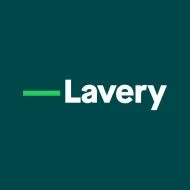Several years after the creation of an inter vivos trust, the tax residence of one or several beneficiaries who were initially residents of Canada may change. For example, a beneficiary child may become a resident of the United States to study and possibly remain there, thus severing his or her residential ties with Canada. In such a case, Part XII.2 tax may apply1 to the trust which is a resident of Canada since one or several of its beneficiaries have become non-residents of Canada under the Income Tax Act ("ITA").
The purpose of Part XII.2 tax in the ITA is to avoid situations whereby non-residents of Canada reduce their tax burden by holding assets or operating a business in Canada through a trust which is a resident of Canada for tax purposes instead of directly holding the assets or operating the business. In fact, a non-resident who operates a business in Canada and later disposes of it and realizes a capital gain will be taxable in Canada at the same rate as a Canadian resident on his or her business income and on the capital gain thus realized. In the absence of the Part XII.2 tax, the non-resident could operate his or her business and hold the business assets through a trust resident in Canada to avoid being himself or herself liable for Part I tax.
Where the conditions are met, Part XII.2 tax applies at the rate of 36%, most particularly on the income from a business operated in Canada earned by a trust, on income from real property located in Canada and on the taxable capital gains from the disposition of taxable Canadian property ("TCP"). A TCP includes, among other things, shares of private corporation to the extent that, during the 60 month period preceding the time of disposition, more than 50% of the fair market value of the shares is directly or indirectly attributable to real or immovable property located in Canada2. Thus, the presence of a non-resident beneficiary somewhat contaminates the trust resident in Canada because when the income earned by the trust is taxable under Part XII.2 of the ITA, the tax is payable irrespective of whether the income is attributed to a resident beneficiary or not3.
Part XII.2 tax must be paid by the trust in the 90 days following the end of the fiscal year4. The beneficiaries who reside in Canada may generally claim a refundable tax credit representing Part XII.2 tax paid by the trust on the portion of income attributed to them. Thus, Canadian beneficiaries should generally not be penalized for the Part XII.2 tax paid by the trust. However, since the trust must first pay the Part XII.2 tax and the Canadian beneficiaries can only claim a refundable tax credit in their own tax return several months later, Part XII.2 tax may result in certain cash flow difficulties. As for the non-resident beneficiaries, Part XII.2 tax may represent a net cost if the non-resident beneficiary resides in a foreign country which taxes the income attributed by the trust residing in Canada without providing foreign tax credits or other mechanisms to enable taxpayers to avoid double taxation.
Some planning may be considered when it is anticipated that the beneficiary of a trust will become a non-resident of Canada in order to reduce or avoid Part XII.2 tax. In such situation, it is important to consult a tax advisor to assess the choices that could be made.
Footnotes
1 Part XII.2 tax may apply in other situations which are not covered in this bulletin.
2 Under the ITA, a gain from the disposition of real or immovable property located in Canada or Canadian resource property also constitute a TCP. Timber resource property and in certain circumstances, shares of the share capital of a corporation listed on a designated stock exchange may also be considered as TCP.
3 The expression "beneficiary" not being defined in the ITA, some issues may be raised as to the status as a beneficiary of a non-resident person who does not receive any income or capital from the trust in a given fiscal year.
4 Paragraph 104(30) ITA also provides that Part XII.2 tax paid by a trust for a fiscal year must be deducted from its income for the year
The content of this article is intended to provide a general guide to the subject matter. Specialist advice should be sought about your specific circumstances.



